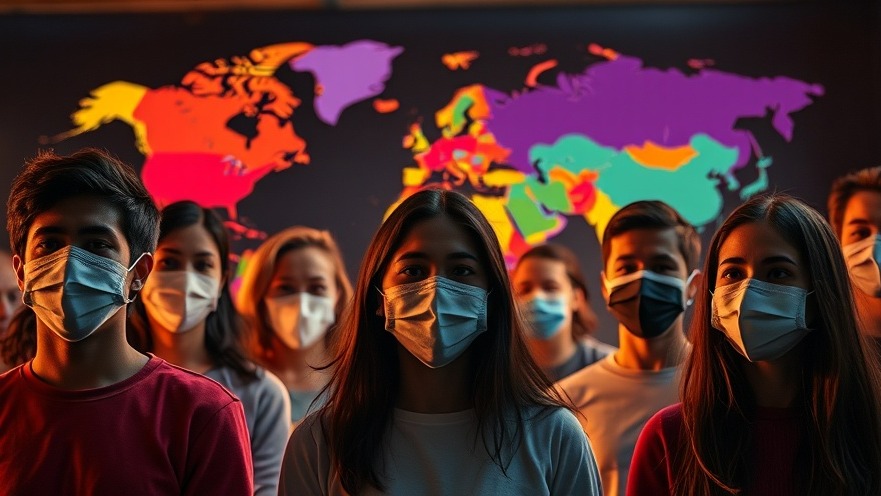
Understanding Health Isolationism
In January 2025, the world witnessed a significant shift in global health dynamics when President Donald Trump signed an executive order indicating the United States' intention to withdraw from the World Health Organization (WHO). This move, primarily driven by funding withdrawal and personnel revocation, aroused serious concerns about the collaborative capacity of nations to confront future pandemics and health threats effectively.
The Critical Role of WHO
The WHO, established in 1948 after World War II, serves as the chief coordinating body for international health issues. As the largest contributor to WHO, the U.S. supplied about 15.6% of the organization's total revenue for 2022-2023. The repercussions of the U.S. stepping back from WHO's initiatives could cripple its ability to respond to global health crises, severely affecting vulnerable populations who rely on international aid.
WHO's fundamental mission is to promote health, keep the world safe, and serve the most vulnerable populations. Beyond addressing pandemics, WHO provides comprehensive guidance that guides nations in formulating health strategies, combating non-communicable diseases, setting vitamin and nutritional standards, and fostering essential research collaborations.
Consequences of Withdrawal
The decision to withdraw is not without its fallout. Analysts contend that it will adversely impact global health governance. A report from Johns Hopkins University emphasizes that the U.S. contributes significantly not only financially but also through its expertise in health safety and emergency preparedness. It assists with critical data gathering and analysis, which are crucial during health crises.
According to another significant assessment published in The Lancet, detaching from WHO could hinder U.S. access to necessary resources for diseases like influenza and COVID-19. Importantly, collaborative efforts to track and respond to outbreaks—such as Ebola, dengue, and other vector-borne diseases—would be impaired, making the U.S. more vulnerable to emerging health threats.
Impacts on Medical Innovation and Business Practices
For owners of concierge medical practices, particularly those focusing on growth and regulatory compliance, the implications of health isolationism may extend beyond global health. The disruption in international collaboration could stifle innovation, limiting access to cutting-edge medical strategies and research opportunities that often emerge from international partnerships. Moreover, U.S. medical teams regularly engage in WHO initiatives that bolster contemporary medical practices. Interruptions in these relationships signal potential setbacks for local medical businesses reliant on the latest research and global best practices.
The Broader Implications
Leaving WHO could reshape American diplomatic relationships, especially in health-related areas. As the U.S. has historically positioned itself as a leader in providing health assistance globally, withdrawal from WHO may embolden other countries to pursue independent agendas unfettered by American influence. This could undermine the collaborative spirit necessary for addressing health crises affecting both foreign populations and the U.S. itself.
As Dr. Judd Walson from Johns Hopkins articulated, the United States’ elliptical stance toward WHO could create a scenario where its absence from critical global discussions results in a loss of situational awareness. Lack of access to emerging health threats could lead to delayed responses that jeopardize American lives.
Final Thoughts: What’s at Stake?
Health isolationism embodies a dangerous tendency that resonates far beyond national borders. For medical professionals, understanding the interconnectedness of global health dynamics is pivotal for navigating the ever-evolving healthcare landscape. The withdrawal from WHO symbolizes not just a financial or organizational split but a fundamental shift in how the U.S. engages as part of a global health community. As concierge medical practices consider their future amidst these changes, they must integrate this awareness into their operational strategies. Staying informed about regulatory frameworks and advocating for collaborative health initiatives can empower these practices to remain at the forefront of innovation and patient care, ultimately ensuring that the health repercussions of isolationism do not fall on their shoulders.
 Add Row
Add Row  Add
Add 






Write A Comment